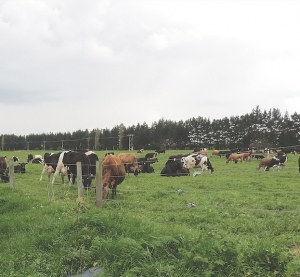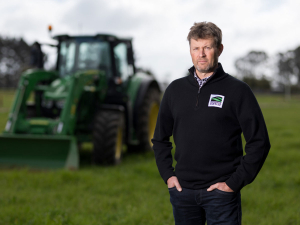Academics in the UK and India aim to develop jointly a control strategy for TB, with benefits for human and animal health. Bovine TB costs British taxpayers about £100m (NZ$200m) a year.
Britain has compulsory bovine TB screening and slaughter, but despite proof that the BCG vaccination protects cattle against the disease, it is unlawful to vaccinate because the BCG interferes with the skin test currently used to detect the infection (giving a positive result whether an animal has been vaccinated against, or is infected with, TB).
In India, the problem of zoonotic human TB is compounded by 70% of milk sold being processed by the ‘unorganised’ sector where hygienic practices are not guaranteed. Bovine TB screening and control is also ineffective due to unrestricted animal movements and for socio-economic and cultural reasons.
Johnjoe McFadden, professor of molecular genetics at the University of Surrey, is leading this three-year project to develop a cheaper diagnostic test for bovine TB and a vaccine that could be used alongside it. Success would revolutionise control of bovine TB, benefitting the economy, and animal and human health, particularly in India.
The scientists are seeking to delete some of the antigens in the BCG to develop a minus strain and replace the existing skin test (which detects all of the antigens TB produces) with one that detects only a limited number of antigens – those eliminated from the minus strain BCG.
This means the test would show a positive result only if infection with the TB bacillus was detected.
The research will focus on identifying which genes to knock out from the BCG – to ensure any knock-out genes do not impact the effectiveness of the BCG – and designing the diagnostic.
McFadden says while other labs are looking for BCG plus strains, “we are doing the opposite and looking at minus strains to make the vaccine more compatible with affordable diagnostics”.
“If a suitable new vaccine and diagnostic test can be developed for use in India, it could be transferred to the UK (subject to relevant legislation changes) or even translated for use in humans, avoiding the need for an X-ray to confirm diagnosis following a positive test for TB.”
The research will benefit from the recent establishment of the University of Surrey School of Veterinary Medicine, which has a strong focus on developing new control strategies for animal disease.
















